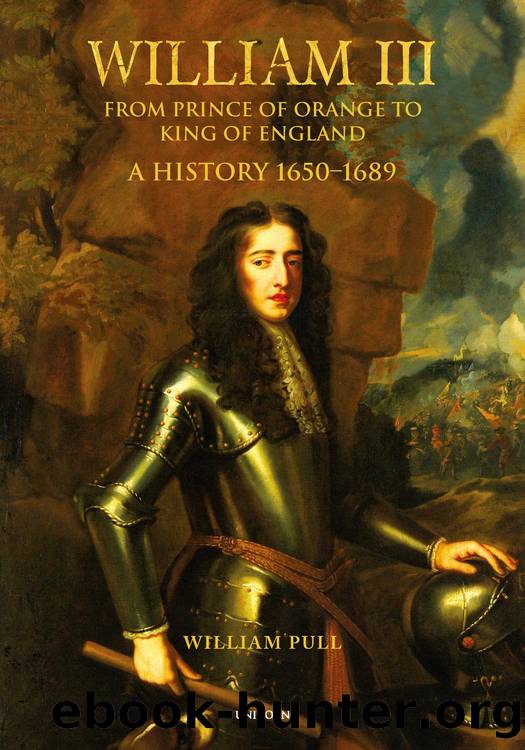William III by Pull William

Author:Pull, William
Language: eng
Format: epub
Publisher: Unicorn Publishing Group
Published: 2021-07-15T00:00:00+00:00
King Charlesâs offer to act as mediator had been accepted by Vienna and Madrid, as it had by Louis XIV, and Temple told the Prince that, as the author and guarantor of the treaty of Aix-la-Chapelle, Charles could not propose anything under his mediation that went beyond the terms of that treaty, âor something equivalentâ. In that case, the Prince said, ââtwere better going on with the war, let it last as long, and cost as much, as it wouldâ. He believed he had the support of all men of any sense in the Dutch Republic â although Temple, rather forthrightly, told him he doubted that.37
Moral obligations were intertwined with realpolitik; once abandoned by the Dutch it would be very difficult to reconstruct another grand coalition against Louis XIV and, quite apart from Spain, the Dutch had their own vital interests to preserve in securing the very vulnerable Spanish Netherlands against France. At the same time King Charles, the Prince said, âcould never shew him so much kindness, as to bring him out of this war with honour: if he would not, it must go on till some change happened in the condition of the parties, to make the peace more necessary on one side or the otherâ¦; he must perform what his own honour, as well as that of the States, was engaged in to their allies, let it cost what it would.â âHonourâ was an essential component of his gloire and the diminution of the one would bring with it the diminution of the other.
The terms he conveyed to Temple were, of course, unacceptable to France. But the Prince believed that it was in the interests of his uncle to safeguard the Spanish Netherlands and he also believed, or at least said, that Charles II was in a position to impose peace terms on France.38 For Charles the overriding imperative was not to be divided from Louis XIV, however much an increasing body of influential opinion in England shared the Princeâs views on the Spanish Netherlands.
Thus matters stood when the family mission led by Arlington arrived in The Hague. It started well enough, with the Prince resorting to Nassau-Odijkâs house, where Arlington was staying, for nightly suppers. There was a preliminary meeting, confined to courtesies. But when subsequent meetings turned to matters of substance the mood changed. Despite Arlington assuring the King of the Princeâs goodwill and affection for his uncle, Temple reports that Arlington found the Prince âdry and sullen, or, at the best, uneasyâ, whilst the Prince complained of Arlingtonâs âarrogance and insolenceâ and that he treated him as âa child ⦠it was as if he had taken himself as the prince of Orange, and him for my lord Arlingtonâ. In short, as the Prince of Orange â who had now also become one of the chief protagonists on the European scene â he was not prepared to be patronised by Charles IIâs Lord Chamberlain.
When the discussions between them turned to the possible peace terms
Download
This site does not store any files on its server. We only index and link to content provided by other sites. Please contact the content providers to delete copyright contents if any and email us, we'll remove relevant links or contents immediately.
Plagued by Fire by Paul Hendrickson(17391)
The 5 Love Languages: The Secret to Love That Lasts by Gary Chapman(9754)
How to Bang a Billionaire by Alexis Hall(8125)
Wonder by R. J. Palacio(8084)
The Institute by Stephen King(7014)
The Space Between by Michelle L. Teichman(6910)
The Thirst by Nesbo Jo(6905)
The Testaments by Margaret Atwood(6861)
Assassin’s Fate by Robin Hobb(6183)
Wiseguy by Nicholas Pileggi(5740)
The Night Circus by Erin Morgenstern(5201)
Spare by Prince Harry The Duke of Sussex(5162)
Bittersweet (True North #1) by Sarina Bowen(4829)
The MacArthur Bible Commentary by John MacArthur(4807)
Tuesdays with Morrie by Mitch Albom(4750)
Everything Happens for a Reason by Kate Bowler(4717)
The Templars by Dan Jones(4671)
Gerald's Game by Stephen King(4622)
From Sand and Ash by Amy Harmon(4472)
